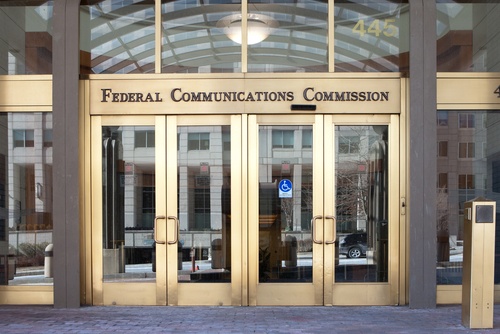Key Takeaways
- President Trump slammed a proposed FCC merger plan on Truth Social.
- The plan would let Nexstar buy TEGNA, exceeding a TV ownership cap.
- Trump called ABC and NBC “fake news” and linked them to the Democrat Party.
- He urged regulators to shrink, not expand, these networks.
President Trump used his social media platform to criticize the FCC merger plan. He warned that the deal could give so-called “anti-Trump” networks more power. His comments came shortly after Newsmax reported FCC Chair Brendan Carr supports the merger. Trump claimed major networks act as an “illegal campaign” for the Radical Left. He demanded regulators block or even reverse any expansion of these networks.
Inside the FCC Merger Plan
The FCC merger plan aims to let Nexstar Media Group buy TEGNA for about $6.2 billion. Nexstar already owns many local NBC, ABC, and CBS stations. If approved, the combined group would exceed the federal network ownership limit of 39 percent. This cap dates back to a law from the Reagan era. It stops one company from reaching too many U.S. homes. Supporters say lifting the cap could boost local news resources. Opponents worry it may reduce diversity in media voices.
What is the FCC merger plan?
The FCC merger plan would change or waive current rules that limit TV reach. Under existing law, no broadcaster can control stations covering more than 39 percent of U.S. households. Nexstar’s purchase of TEGNA would push them past that limit. Therefore, the FCC would need to adjust or suspend the rule. Carr, a former Supreme Court clerk and Trump supporter, backs this change. Critics call it a gift to big media companies. Yet Carr argues it will benefit viewers by allowing investment in local news.
How Nexstar and TEGNA Fit In
Nexstar owns dozens of local TV stations across the country. TEGNA runs its own network of affiliates and digital outlets. By joining forces, they would cover more markets and share resources. For example, they could pool reporting teams to cover national stories. They could also cut duplicate costs in advertising and technology. As a result, Nexstar says, local stations could get better content and updated equipment. However, critics fear fewer independent stations will exist. They worry local voices might get drowned out by a corporate focus.
Why Trump Objects
Trump claims the FCC merger plan would help “Radical Left Networks.” He specifically called out ABC and NBC as Democrat Party arms. On Truth Social, he wrote these networks “should be viewed as an illegal campaign.” He fears they will push more anti-Trump content. Moreover, Trump said he wants the networks to shrink, not grow. His comments reflect his long-standing battle with mainstream media. He accuses many outlets of biased coverage. In this case, he believes a bigger Nexstar would amplify what he calls “FAKE NEWS.”
Potential Impact on Viewers
If the FCC merger plan moves ahead, viewers might notice fewer independent voices. Local stations may cut some shows to save money. On the other hand, they could invest in better technology for news coverage. For example, stations might use more advanced live-streaming tools. They could also share significant investigative reports across markets. This could raise the quality of national news. Yet, reduced competition could mean less variety in reporting styles. Some experts warn this could limit show choices in local markets.
The Road Ahead
The FCC must now decide whether to approve the merger plan. They will weigh public comments and legal limits on ownership. If they grant an exemption, Nexstar can complete its TEGNA deal. If they deny it, Nexstar may abandon or revise the offer. Meanwhile, legal challenges could block the plan in court. Congress could also intervene if lawmakers object to changing the cap. In any case, the debate over media power and bias is far from over.
Frequently Asked Questions
What exactly is the FCC merger plan?
It is a proposed change to rules that cap one broadcaster’s reach at 39 percent of U.S. households. The plan would let Nexstar exceed that limit to buy TEGNA.
Who are Nexstar and TEGNA?
Nexstar is a large company that owns many local TV stations. TEGNA runs a network of affiliates and digital news outlets. Their merger would create one of the biggest TV groups in the country.
Why does Trump call major networks “fake news”?
Trump often accuses ABC, NBC, and others of biased reporting. He argues they act as a campaign arm for the Democrat Party. In this case, he fears a bigger media group would push more anti-Trump coverage.
How could this affect my local news?
If the merger goes through, some independent stations might close or combine. Viewers could see fewer local shows. However, combined resources might also mean better technology and bigger news teams.
